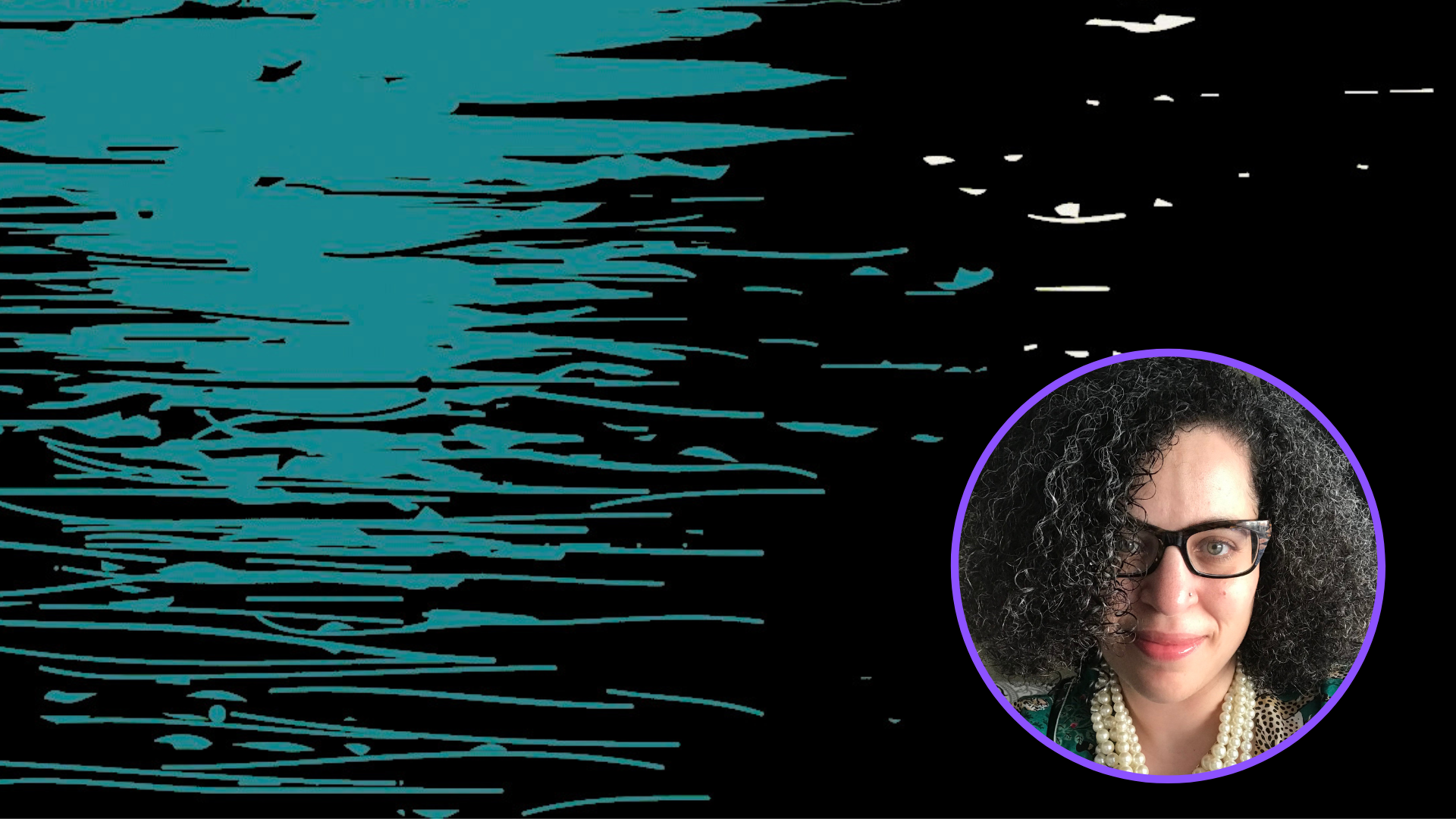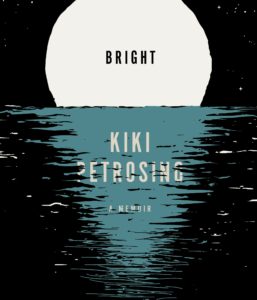
Kiki Petrosino is the author of White Blood: a Lyric of Virginia (2020) and three other poetry books. She holds graduate degrees from the University of Chicago and the University of Iowa Writer's Workshop. She teaches at the University of Virginia as a Professor of Poetry. Petrosino is the recipient of a Pushcart Prize, a Fellowship in Creative Writing from the National Endowment for the Arts, an Al Smith Fellowship Award from the Kentucky Arts Council, and the UNT Rilke Prize.
We talked with Kiki about Bright: A Memoir, which is her first full book of prose and an exploration of selfhood, identity, and belonging as a Black American of interracial heritage.
 Bright is your first full-length essay collection, a memoir and meditation on growing up in a Black and Italian American family and the complexities of mixed racial identity. When did you know you wanted to write this book?
Bright is your first full-length essay collection, a memoir and meditation on growing up in a Black and Italian American family and the complexities of mixed racial identity. When did you know you wanted to write this book?
I think I've been moving towards this project for a long time. When I leaf through my old papers and essays from college, and when I look at the first "serious" poetry I began writing as a younger person, questions of selfhood and belonging pervade. As a Black American of interracial heritage, it's been my honor and my challenge to practice multiple cultural traditions in the context of my mixed family--and to approach the question of identity obliquely, even slantwise, as a traveler accustomed to moving between worlds. In Bright, I wished to walk the frontier between verse and prose, and the lyric essay form allowed me to cross from one modality to the other in my writing practice. Having written four books of poetry, I've come to memoir in my usual sidelong manner--as a fascinated outsider. That feeling--of being new here, of not-quite-knowing-how-it's-done--was generative for me in conceptualizing Bright as my first-ever foray into book-length personal narrative.
The book brings together intimate memories and reflections with close readings of Dante and Shakespeare and archival research on the writings of Thomas Jefferson. What was your research process like?
Bright braids together various references to texts that have been important to me for years. I first encountered Dante's Divine Comedy as an undergraduate student at the University of Virginia, and that's also, of course, where I studied Jefferson's writings. Ever since the devastating violence of the Unite the Right rally in Charlottesville--so, years before I'd return here to teach--I've been thinking about my undergraduate days at UVA. It was such an intense time for me--full of intellectual and artistic discovery, and full of personal loss, including my parents' divorce and my grandfather's suicide. I held onto my studies like a life raft, and my love of language got me through those difficult years. And the literature I studied back then invites me to read it differently now, at this stage of life, and to ask different questions leading me down fascinating paths of inquiry. Like Dante, I make many pilgrimages through the woods.
In Bright, you identify poetry with a spiritual force, writing, “Within poetry is a kind of divinity, one that requires me to listen, with my human ears, to its human voice.” How would you define poetry, and what is its relationship to memoir for you?
For me, poetry is a form of inquiry. If we think of knowledge as a house, we know there are all sorts of ways to get in. History, for example, might lead us through a door. Philosophy directs us to the attic. The STEM disciplines invite us to peer into keyholes and into secret corners. Poetry is another way to enter the house of knowledge--maybe it's the little puffs of dandelion seeds that float, on the air, through the kitchen window while you're washing dishes after dinner. After all, poetry does not have to move in a linear matter. Poems can float and spin and leap, illuminating the connections between dream and memory, or between history and myth. A lyric memoir, like Bright, also moves associatively, weaving together seemingly disparate threads into a complex whole. Both poetry and memoir allow us to approach knowledge in a way that honors the complexity of our questions.
When reading this book, one encounters twelve “fairy tale” interludes throughout the text. Can you talk to your intention in including those moments?
Those interludes are inspired by a collection of Scandinavian fairy tales, East of the Sun and West of the Moon: Old Tales from the North, illustrated by the Danish artist, Kay Nielsen, in 1914. The stories are filled with white bears, golden apples, giants, princesses, trap doors, forests, and The North Wind. As a poet by vocation, I'm drawn to the luminous imagery and to the richness of Nielsen's illustrations, which create an immersive visual experience. I also love the whimsical folksiness of the English-language translation (much of the narrative advances via the interjection, "well," such that each plot point kind of stacks itself on top of the previous). In writing Bright, I wanted to convey how difficult it is to talk about the nature of interracial identity in a society that (willfully, it seems to me) insists on binaries. Having a mixed heritage is so big, it can feel mystical, even allegorical, especially when you're a young person. But identity is also so, so small and personal. For me, it's a long and fascinating story, an account best started with "Well..."
Was there any part of the book, as you wrote it, that surprised you?
Prior to Bright, I had not written publicly about my grandfather's death and how it affected me. It was not even something I discussed with most of my friends over the past twenty years. I'm at a stage of life, now, where I'm willing to share this painful experience with readers, but in writing the memoir, I was not at all sure I could really compose the words to tell the story. So I was surprised--happily, tearfully, so--when the words came.
What are you most proud of within the book?
I can't believe I actually wrote a whole book of prose! That's the point of pride for me. I've embarked on a new genre, and I can see exciting paths opening before me.
Have you read anything recently that you really loved? Are there any books coming out that you are looking forward to?
Lately, I'm fascinated by cookbooks, especially ones that incorporate history and narrative along with the cooking. If a book's title says, "recipes and stories," I'm clicking purchase. Recently, I've happily dipped into Mandy Lee's The Art of Escapism Cooking, Bryant Terry's Black Food, Nicole A. Taylor's Watermelon & Red Birds, Amber Guinness' A House Party in Tuscany, and Emiko Davies Cinnamon and Salt. I'm having a lot of fun reading those.


